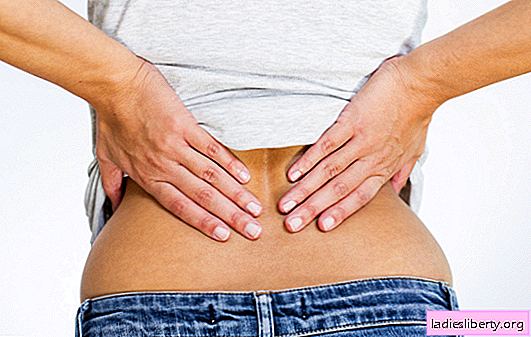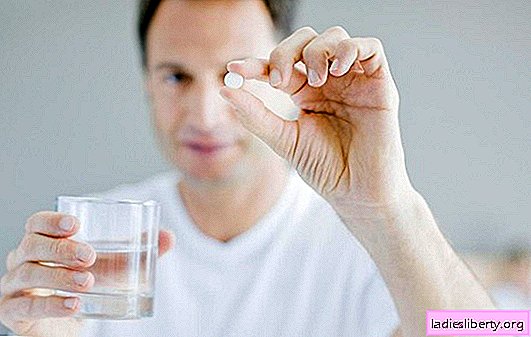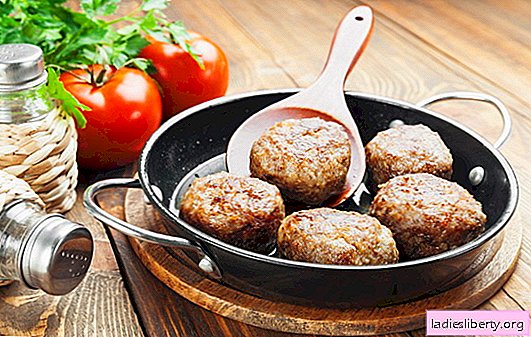
Kidney pain is always an unpleasant and extremely painful symptom for the patient.
For the most part, we are talking directly about the pathologies of this paired organ, but in some cases the problem may not be hidden at all where it would have been supposed.
It is practically impossible to independently determine the source of pain, and even more so to cope on your own: the help of a competent doctor is required.
Unfortunately, one often has to talk about quite serious diseases accompanied by the described manifestation: pyelonephritis, nephritis, glomerulonephritis, and this is only part of the possible causes of pain. All of these diseases are extremely dangerous for the health and even the lives of patients. Therefore, you should not look at the manifestation of "through the sleeves." This is fraught with big problems.
What you need to know about kidney pain in order to respond on time? Let's try to figure it out.
Kidney hurts: causes
The reasons for kidney pain are manifold. In the vast majority of cases, we are talking about pathological factors: healthy kidneys do not hurt, no matter how silly it sounds. What are the most common causes for patients?
• Pyelonephritis. Frequent illness. It is found, according to various estimates, in 25-30% of the entire adult population of the planet. In the practice of a nephrologist, the numbers can vary from region to region. Most often, this insidious disease occurs with extremely scarce symptoms, so many do not suspect that they are sick, attributing all the discomfort to cystitis or even a cold. The essence of the pathology is inflammation of the kidney tissue itself, as well as the renal pelvis. One is affected, or, what happens more often, both kidneys at once. In the latter case, the manifestations will be more pronounced. It is important to carefully consider the signals of your own body.
• Nephritis. A fundamentally different disease. If you do not go into complex details, other structures of the kidney tissue become inflamed. Jade, unlike pyelonephritis, most often occurs with vivid symptoms, which are difficult to miss, being a minimally attentive person. Also the fundamental difference is the origin of this pathology: if pyelonephritis is more often caused by infection, then nephritis is caused by endogenous, internal causes (another pathology of the kidneys, etc.).
• Glomerulonephritis. Similar in its manifestations to jade. The clinical picture has many identical manifestations, the difference is in the etiology: glomerulonephritis is an immune disease in which the cells of the body's defense system begin to attack the kidneys.
• Urolithiasis disease. It occurs most often. Stone stones of even a small size can cause renal colic, which is very painful and can lead, according to some reports, even to pain shock. In this case, a kidney stone is the cause, and colic is the effect. However, they should be considered in conjunction.
• Renal colic. Itself is not common. It can be caused, in addition to stones, also by malnutrition with a predominance of aggressive acids in the diet, but this is rare.
- a similar set of causes of pain in the kidneys and I have to say. A little less often we are talking about fundamentally different processes that have no relation to the kidneys. These include:
• Colitis (inflammatory lesions of the colon).
• Crohn's disease.
• Appendicitis.
• Gallstone disease and colic gallbladder.
• Pathology of the liver and digestive system in general (to a lesser extent).
• Colorectal Cancers (usually sigmoid, but a similar cause is extremely rare and mainly in older people).
Characteristic symptoms
The first and most common symptom, oddly enough, is pain. It is different for different diseases. So, pyelonephritis is characterized by pulling pains in the area of the affected organ, nephritis is associated with dull aching pains, and renal colic is accompanied by extremely intense discomfort, literally driving the patient crazy. It is not recommended to conduct differential diagnosis on your own, however. High risk of mistakes. It is better to give this work to the doctor. Pain can be given to the abdomen, back, lower back. Therefore, it is impossible to determine where one disease ends and another begins “by eye”. Diagnostic measures required.
In addition to pain, the most commonly observed:
• Polyuria. Especially with pyelonephritis. This is a pathological increase in the daily amount of urine. Usually we are talking about relatively small numbers: up to 4-5 liters, but there are exceptions.
• Oliguria. It is characteristic of advanced pyelonephritis and jade. Reverse polyuria is the process when daily diuresis is reduced to 500 ml or lower.
Both states are dangerous and require correction.
• Hematuria. Isolation of blood with urine. It occurs in most kidney diseases.
Sometimes symptoms of general intoxication of the body may occur. They are especially common in the acute current process.
Diagnostics
Diagnosis is designed to put an end to the question of the causes of pain. This is necessary to prescribe the right treatment. The doctor you should contact is a nephrologist. Do not confuse it with a neurologist: a specialist in the human nervous system.
Diagnostic methods, mainly instrumental. They allow you to determine the cause of pain with sufficient accuracy. Among instrumental studies:
• Ultrasound examination of the kidneys. The most informative technique that gives the most information. It allows you to evaluate the structure of the kidneys, identify sand and stones, and also provides some other valuable information. Ultrasound is first resorted to.
• Radiography of the kidneys. It is prescribed for suspected renal failure, cancer, pyelonephritis, etc. Due to the relatively difficult conduct, it is not so often appointed.
• MRI / CT diagnostics. Gives complete information about the state of the kidneys in statics.
• Scintigraphy (radioisotope study).
A dynamic assessment of the state of the described paired organ is carried out using laboratory methods. Among them:
• General urine analysis.
• General blood analysis.
• Urinalysis by Zimnitsky and Nechiporenko.
In combination, they allow us to assess the functional state of the kidneys, as they say, in dynamics.
Kidneys hurt: what to do
The answer to the question of what to do if the kidneys are sore suggests several aspects at once. First of all, it is necessary to calm down, nervous tension only enhances the pain syndrome. Next, you need to give yourself first aid. You can do this by taking several drugs: an analgesic to relieve pain and an antispasmodic to relieve spasm of the smooth muscles of the body. Usually, Ketorol + Duspatalin or No-shpa becomes the ideal combination. It is necessary to take these drugs with caution: they have a hepatotoxic effect, that is, they “hit” the liver.
With extremely intense pain, you need to take a lying position and call an ambulance. Before the arrival of doctors is forbidden to eat and drink.
Further, the answer to the question of what to do if the kidneys are sore, prescribes the right treatment. In addition to the already mentioned drugs, diuretics (diuretics) are indicated. In extreme cases, surgical treatment is indicated (when removing large calculi, etc.).
Usually enough first aid measures to relieve pain. But it is not necessary to fight with it, but with the primary source of the problem. This can only be done under the supervision of a knowledgeable specialist.
Prevention of kidney pain
Prevention of pain in the kidneys is not very difficult. It is enough to adhere to a number of standard simple recommendations.
• Do not abuse fatty, salty, overly sour and sweet foods. The kidneys tend to be irritated by such products. You should optimize your diet. This is especially true if there is already confirmed kidney disease.
• Move as much as possible.
• Under no circumstances should diuretics be abused. This is a disaster for the kidneys.
• It is recommended that you use the drug to clean your kidneys from time to time. They have proven their effectiveness. It is important that these are herbal teas based on herbs, but not in any way harmful “chemistry”.
• Do not overcool.
• Be careful what you drink. Poor water - the path to kidney stones.
You can fight kidney pain. But you need to do this in tandem with the doctor. In addition, the primary task is to eliminate the primary source of discomfort. It should be solved in order to forget about the problem once and for all.











